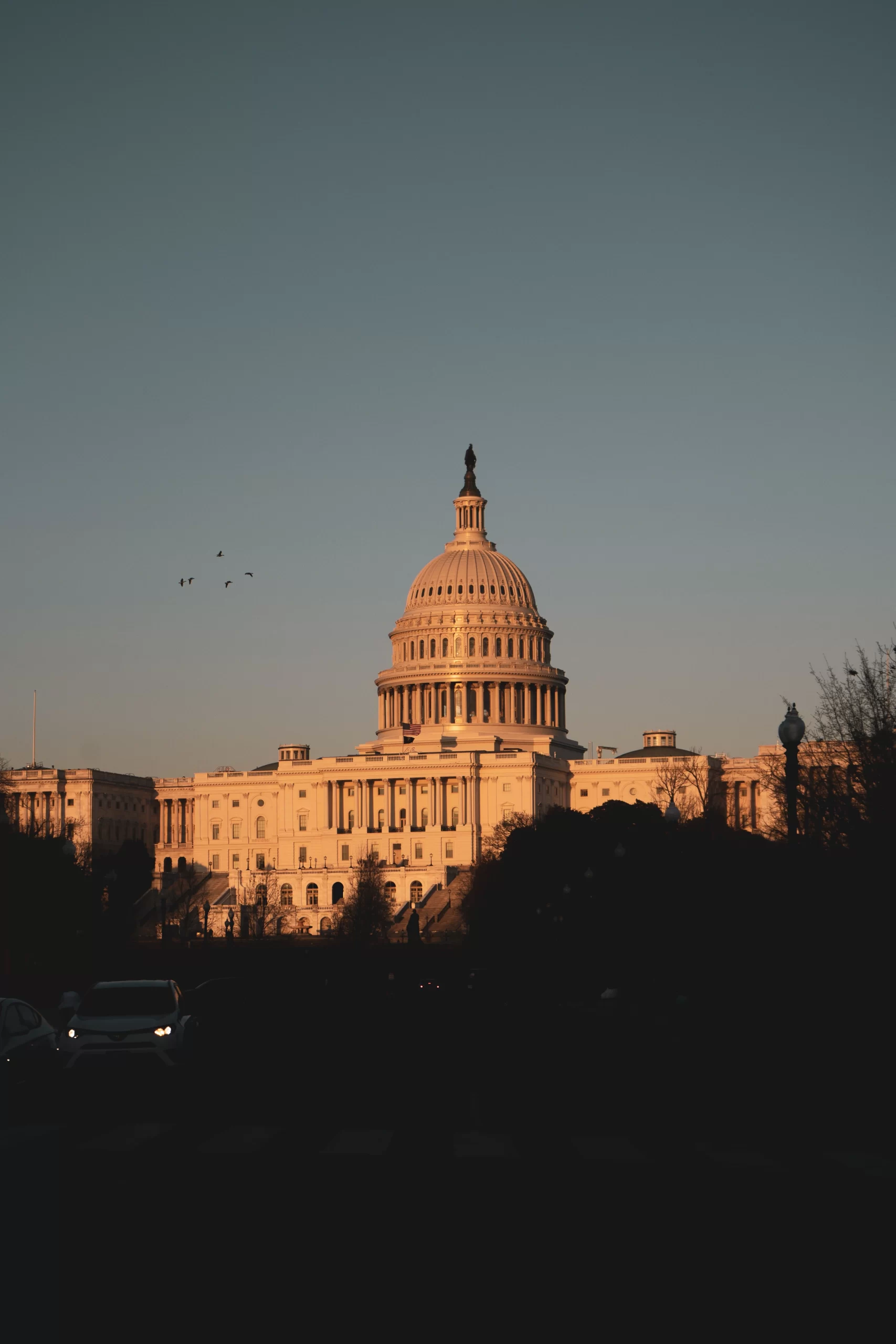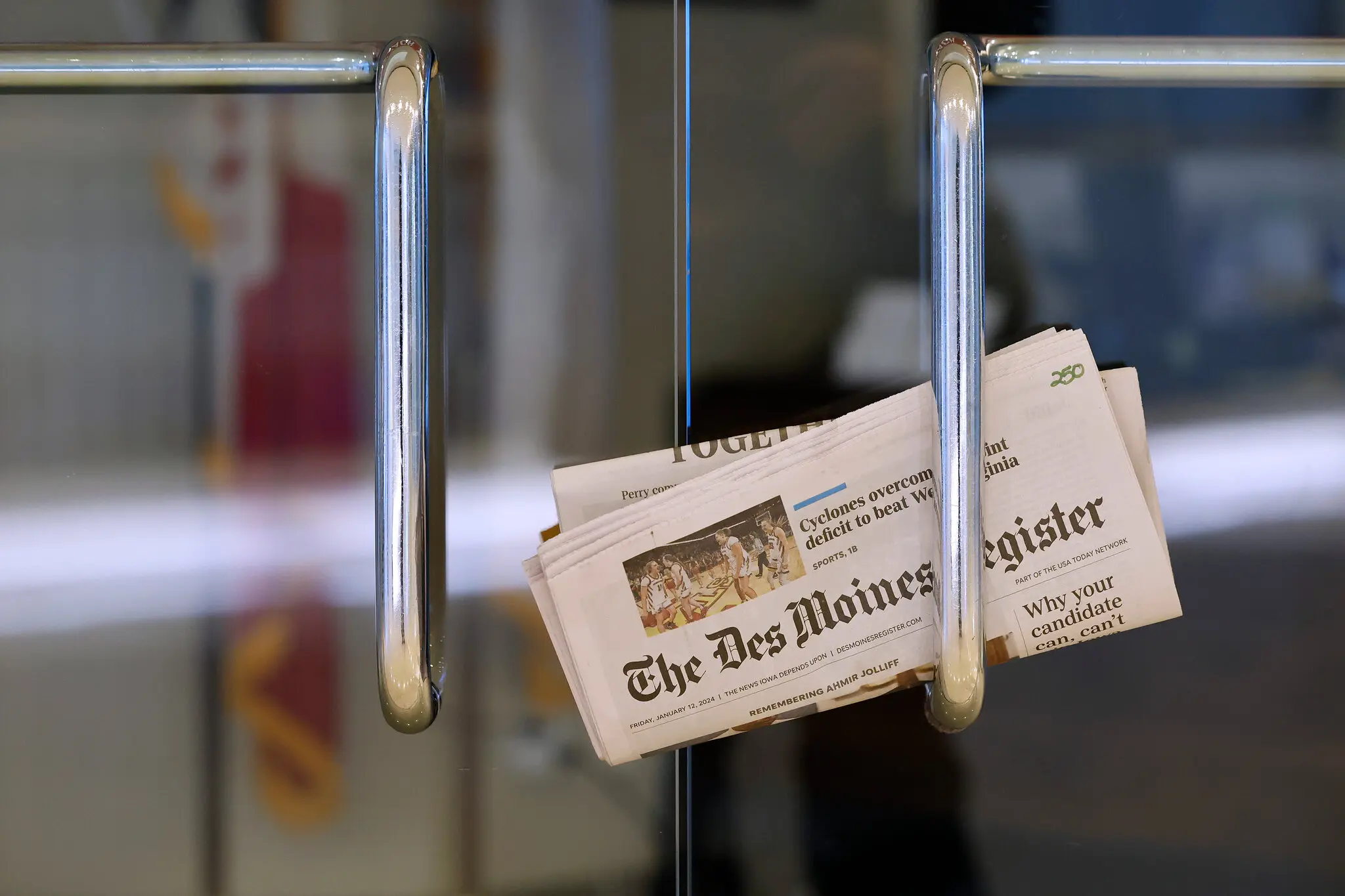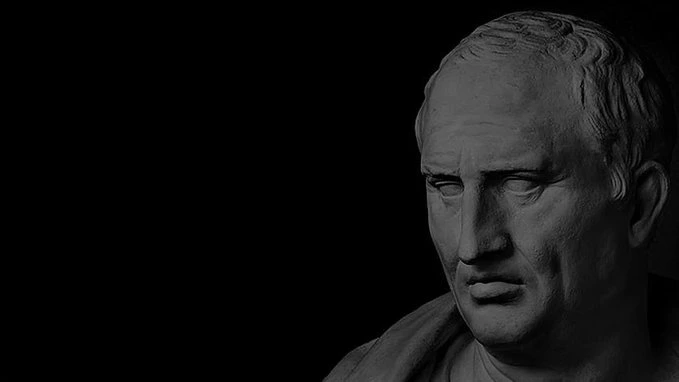A Thousand Cuts (full documentary) | FRONTLINE

A Thousand Cuts to Press Freedom: Maria Ressa, Rodrigo Duterte, and the Shadow They Cast on American Democracy
In the Philippines, a chilling narrative unfolded during the presidency of Rodrigo Duterte. Maria Ressa, a fearless journalist and Nobel Peace Prize laureate, found herself at the center of a war on the press, her media outlet Rappler relentlessly targeted by Duterte’s administration. Her crime? She told the truth. In “A Thousand Cuts,” a documentary directed by Ramona Diaz, Ressa’s story comes to life, highlighting the dangerous interplay of disinformation, authoritarianism, and the fight for press freedom.
But as we look beyond the Philippines, it’s hard not to see echoes of this in the United States. When a U.S. president denounces the press as “fake news” and urges followers to trust only him, it undermines the very fabric of democracy—just as Duterte’s administration did in the Philippines. The parallels between these two leaders may seem distant, but the consequences of discrediting the free press are dangerously universal.
The Story of Maria Ressa
Maria Ressa’s journey is one of courage, integrity, and the belief that journalism is a key pillar of democracy. As CEO of Rappler, Ressa became a vocal critic of Duterte’s brutal “war on drugs,” which led to thousands of extrajudicial killings. Rappler’s investigations uncovered the government’s role in these abuses, making Ressa a prime target for Duterte’s administration.
The attacks against Ressa were not just legal battles. They were character assassinations, facilitated by online disinformation campaigns aimed at discrediting her work. Troll armies on social media—often supported by state resources—spread false narratives, twisting facts and manipulating public perception. Ressa’s experiences illustrate how authoritarian regimes exploit digital platforms to erode truth and dismantle trust in journalism.
Her fight for press freedom in the Philippines, depicted in “A Thousand Cuts,” is a microcosm of the larger global battle against disinformation and the erosion of democratic values.
The U.S. and the Rise of “Fake News”
In the United States, the term “fake news” became a rallying cry during the presidency of Donald Trump. Much like Duterte, Trump positioned himself as a populist figure fighting against the “elite media” while simultaneously encouraging distrust of any news that challenged his narrative. When the press was labeled as the enemy, it gave rise to a dangerous phenomenon: an attack on objective truth.
Both Duterte and Trump understood that controlling the narrative is key to maintaining power. By casting doubt on credible journalism and promoting disinformation, leaders like them shift public perception, creating an “us versus them” dynamic where loyalty to the leader supersedes loyalty to facts.
As seen in the Philippines, the consequences of this can be devastating. When trust in the media erodes, so does the ability to hold power accountable. In the U.S., this atmosphere of distrust leads to polarization, where each side operates in its own version of reality, untethered from objective truth.
The Role of Social Media: A Double-Edged Sword
One of the most alarming parallels between Duterte’s crackdown on the press and Trump’s media attacks is the use of social media to fuel disinformation. Platforms like Facebook, Twitter, and YouTube, initially celebrated for democratizing information, became tools for authoritarian regimes to spread propaganda and control public opinion.
Ressa often refers to social media platforms as “behavior modification systems,” emphasizing their role in distorting reality. These platforms are algorithms designed to keep users engaged, often by promoting divisive and inflammatory content. In both the Philippines and the U.S., this meant that disinformation and falsehoods could spread faster than the truth, creating echo chambers that reinforced the leader’s messaging.
The danger of this is clear: when citizens can no longer distinguish fact from fiction, it becomes easier for authoritarian leaders to dismantle democratic institutions without significant resistance.
What’s at Stake?
The cases of Maria Ressa and Rodrigo Duterte show us how fragile democracy can be when the free press is under siege. While the U.S. has not yet experienced the same level of press suppression as the Philippines, the erosion of trust in journalism is a slippery slope. Democracy relies on an informed citizenry. Without the press to hold power accountable, the very foundation of democracy begins to crumble.
The rise of “fake news” rhetoric in the U.S. is a warning sign. If leaders succeed in undermining public trust in the media, it opens the door to more extreme actions: censorship, criminalization of journalism, and unchecked authoritarian power. In the Philippines, we’ve already seen what happens when a leader seeks to crush dissent by discrediting the press. The U.S. must take note.
Conclusion: A Fight for the Future
Maria Ressa’s story is not just about the Philippines; it’s about the future of global democracy. Her fight is our fight. As disinformation spreads, and leaders seek to discredit the free press, the world must recognize that the survival of democracy depends on the survival of independent journalism.
“A Thousand Cuts” is a powerful reminder of what’s at stake when those in power try to control the truth. As we watch Maria Ressa fight for her freedom and her country’s democracy, we must reflect on how easily the same could happen in our own nations. Whether in the Philippines or the U.S., the battle for press freedom is a battle for democracy itself.

President-elect Donald J. Trump sued The Des Moines Register for running a poll before the election that showed him trailing Vice President Kamala Harris, escalating his threats to seek retribution against the mainstream media and his political enemies.
Mr. Trump has long said that people he claims have wronged him should be prosecuted, including President Biden and his family; Jack Smith, the special counsel who charged Mr. Trump with trying to overturn the 2020 election and mishandling classified documents; and Liz Cheney, the former representative from Wyoming who helped lead the House investigation into Mr. Trump’s efforts to cling to power in 2020.
In recent months, he has filed various legal actions against the media that amount to a warning shot about what sort of retaliation journalists, in particular, might face.
As he prepares to take office again, Mr. Trump will have at his disposal the levers of government, a Republican Party that is more pliant than it was four years ago and a well-funded external political apparatus.
“It’s clear that Trump is waging war on the press,” said Samantha Barbas, a professor at the University of Iowa College of Law whose book, “Actual Malice,” is about the Supreme Court’s most famous defamation case. “Trump and his lawyers are going to use any legal claim that they think has a chance of sticking. They’ll cast a wide net to carry out this vendetta.”
Ms. Barbas added that prevailing in court may be beside the point. The lawsuits “are not so much geared toward winning as much as threatening,” she said.
Many of Mr. Trump’s lawsuits go nowhere, including one that accused Hillary Clinton and a group of other Democrats of being part of a racketeering conspiracy against him. That particular suit resulted in nearly $1 million in fines issued by the judge against Mr. Trump’s lawyer.
But last week, ABC News settled a defamation suit filed against the network by Mr. Trump for $15 million, along with another $1 million in legal fees, a huge sum and one that appears to have emboldened the incoming president.
The latest legal action came on Monday when Mr. Trump filed a lawsuit against pollster J. Ann Selzer, her polling firm, The Des Moines Register and Gannett, the newspaper’s parent company. The suit, filed in Polk County, Iowa, and obtained by The New York Times, accused Ms. Selzer of “brazen election interference” for a poll published shortly before the election that showed Ms. Harris leading in Iowa by three points.
Mr. Trump won the state handily, as he has in the past. On Monday, at a news conference in Florida, Mr. Trump previewed the lawsuit, which was already in the process of being drafted.
“I have to do it,” Mr. Trump said. “We have to straighten out the press.”
Unlike most of Mr. Trump’s other lawsuits against the media, which involve claims of defamation, this case alleged Ms. Selzer violated the Iowa Consumer Fraud Act, which prohibits deceptive practices that occur in sales or advertising.
“We believe this lawsuit is without merit,” said Lark-Marie Anton, a spokeswoman for The Des Moines Register. “We have acknowledged that the Selzer/Des Moines Register pre-election poll did not reflect the ultimate margin of President Trump’s Election Day victory in Iowa by releasing the poll’s full demographics, cross-tabs, weighted and unweighted data, as well as a technical explanation from pollster Ann Selzer.”
Ms. Anton added: “We stand by our reporting on the matter and will vigorously defend our First Amendment rights.”
Ms. Selzer said she hadn’t seen the lawsuit and could not comment. But last week, in an interview with PBS, she strongly denounced the idea that she was colluding with anyone to influence an election.
The lawsuit marked the second time this fall that Mr. Trump has used state laws against misleading consumers to attack a news outlet. In October, he sued CBS News in federal court in Texas, alleging that “60 Minutes” engaged in deceptive trade practices when it aired an interview with Ms. Harris.
That argument — along with searching for specific legal jurisdictions that the Trump team believes could be favorable to him — is part of a more targeted approach that the incoming president and his advisers are taking to use the court system as a weapon.
Mr. Trump, who has called reporters “the enemy of the people,” has repeatedly described wanting to be treated “fairly.” But what he would consider fair has often appeared to be news coverage that doesn’t challenge him.
Mr. Trump’s pick to lead the F.B.I., Kash Patel, said months before the election that he would use his job in the next administration “to come after the people in the media who lied about American citizens, who helped Joe Biden rig presidential elections.”
Since winning the election, Mr. Trump told NBC he didn’t expect that Mr. Patel would investigate Mr. Trump’s “political enemies.” But when asked if he wanted to see that happen, Mr. Trump replied: “If they were crooked, if they did something wrong, if they have broken the law, probably. They went after me. You know, they went after me, and I did nothing wrong.”
Just this week, Mr. Trump’s allies in Congress moved to support his efforts to seek retribution against Ms. Cheney, a chair of the House committee that investigated the events of Jan. 6, 2021, and recommended criminal charges against Mr. Trump.
On Tuesday, a House oversight subcommittee issued a report recommending that Ms. Cheney herself face criminal investigation for some of the work she did while investigating Mr. Trump. The report accused Ms. Cheney of secretly communicating with one of the committee’s star witnesses, Cassidy Hutchinson, without Ms. Hutchinson’s lawyer knowing.
Ms. Hutchinson gave significant but disputed testimony at one of the committee’s public hearings, describing, among other things, how Mr. Trump was warned that his supporters were carrying weapons on Jan. 6 but expressed no concern because they were not a threat to him.
By recommending that Ms. Cheney be investigated — including for possibly violating the same federal obstruction count that the congresswoman recommended against Mr. Trump — the House Republicans appeared to be laying the groundwork for a potential criminal prosecution. Mr. Trump has repeatedly said that Ms. Cheney and other members of the Jan. 6 committee should face charges and jail time.
In Mr. Trump’s own telling, winning his civil legal actions isn’t always the point.
Mr. Trump, who has often attacked journalists publicly for details in news accounts that he hasn’t liked, famously lost a libel case that he brought against the writer Timothy O’Brien over Mr. O’Brien’s description of Mr. Trump’s net worth as much less than he claimed it to be.
The case played out over the span of years. But during the 2016 election, Mr. Trump told The Washington Post that it was worth it, even with the loss.
“I spent a couple of bucks on legal fees, and they spent a whole lot more,” he said of Mr. O’Brien and his book publisher. “I did it to make his life miserable, which I’m happy about.” 1
1.
Trump sues The Des Moines Register, escalating threats against the media. December 17, 2024 issue New York Times.
Democrat’s Epic EXPOSÉ Of Voting-Rights Assault
Watch as Sen. Sheldon Whitehouse connects the dots between the current GOP push to roll back voting rights, and the dark money behind Republican efforts to capture the courts.
Sen. Whitehouse speaks on dark money and court capture in Senate Judiciary Committee hearing on Texas’s abortion ban and reproductive rights. 09*29*2021
https://www.coolmediallc.com/senator-whitehouse-conducts-a-masterclass-week-over-week-of-dark-moneys-trail-into-our-republic/

Vigilance. Certain freedoms need your protection. The First Amendment guarantees freedoms concerning religion, expression, assembly, and the right to petition. It forbids Congress from both promoting one religion over others and also restricting an individual’s religious practices. It guarantees freedom of expression by prohibiting Congress from restricting the press or the rights of individuals to speak freely. It also guarantees the right of citizens to assemble peaceably and to petition their government. A free press is critical to the survival and integrity, sustainability of our Republic.
Amendment I
Congress shall make no law respecting an establishment of religion, or prohibiting the free exercise thereof; or abridging the freedom of speech, or of the press, or the right of the people peaceably to assemble, and to petition the government for a redress of grievances.
The 14th Amendment to the U.S. Constitution, ratified in 1868, granted citizenship to all persons born or naturalized in the United States—including formerly enslaved people—and guaranteed all citizens “equal protection of the laws.” One of three amendments passed during the Reconstruction era to abolish slavery and establish civil and legal rights for Black Americans, it would become the basis for many landmark Supreme Court decisions over the years.
In its later sections, the 14th Amendment authorized the federal government to punish states that violated or abridged their citizens’ right to vote by proportionally reducing the states’ representation in Congress, and mandated that anyone who “engaged in the insurrection” against the United States could not hold civil, military or elected office (without the approval of two-thirds of the House and Senate).
Confident your Republic can withstand four years of Authoritarian rule in these United States? Consider for a moment how our National divide is today compared to 2015. How did our founding fathers source information about the tenure and Fragility of democratically elected Republics? Adams, Jefferson, and Madison all looked to Cicero. Cicero: Defender of the Roman Republic Cicero was a Roman orator, lawyer, statesman, and philosopher. During political corruption and violence, he wrote about what he believed to be the ideal form of government.

https://www.coolmediallc.com/robert-downey-moving-to-durham-nc-is-a-hoax/
Why Trump and Duterte have a lot in common | The Financial Times
Modern best practices
The FT’s John Reed looks at the similarities between the populist presidents of the US and Philippines as well as the issues that divide them.

Andrew Yang On UBI, Redefining Progress & Human-Centered Capitalism
2020 presidential candidate Andrew Yang joins Rich to share the merits of universal basic income, human-centered capitalism, and redefining progress as a nation. To read more about Andrew and peruse the full show notes click here👉🏾https://bit.ly/richroll640

Busted: Indicted Trump Aide Bannon Sees Jan. 6 ‘Playbook’ Leaked By Ally
December 28, 2021
Trump ally Steve Bannon is indicted and awaiting trial for hiding evidence about his January 6th plotting. Now, one of his accomplices, Trump veteran Peter Navarro, has leaked information detailing the plan to rally Congressional Republicans to interfere with certifying Biden’s 2020 election win. MSNBC’s Chief Legal Correspondent Ari Melber is joined by Democratic strategist Chai Komanduri to discuss the revelation and Navarro’s comments likening the effort to the “Green Bay Sweep.” (This segment is from MSNBC’s “The Beat with Ari Melber,” a news show covering politics, law, and culture airing nightly at 6pm ET on MSNBC bit.ly/thebeatwithari).

